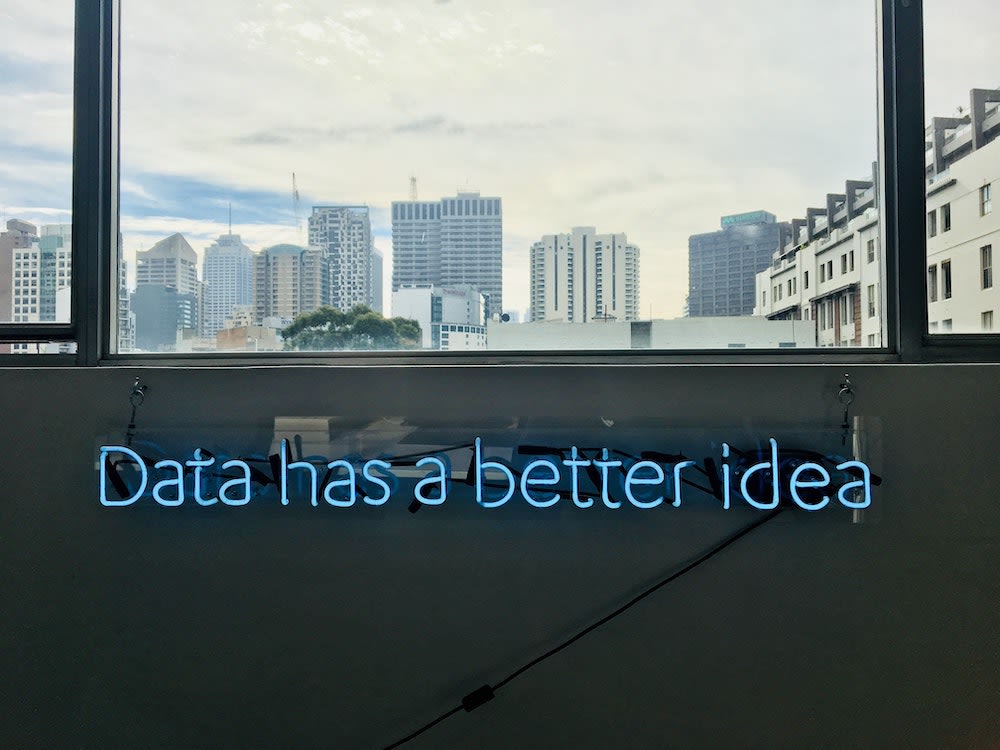
As the market becomes more candidate-driven and even more challenging to identify top talent, recruiters must adapt to the new environment using AI tools to stay on top of their job.
Talent teams face tremendous pressure to put first human interaction and personalized engagement to capture the most sought-after candidates.
Within the next 5 years, the race (not war) for talent will be won by leaders who can use AI tools effectively to automate their workflows intelligently.
Here's a complete guide on using AI in recruitment. Let's get started.
Benefits of AI in recruitment
- Time-saving: AI-powered recruitment tools can quickly analyze large volumes of resumes, saving recruiters and hiring managers significant time and effort in the screening and selection process.

- Enhanced candidate experience: AI-powered chatbots in recruitment can improve the candidate experience by providing instant responses to candidate queries, guiding them through the application process, and conducting conversational assessments to evaluate candidates.
- Improved quality of hire: AI algorithms can match candidate skills and experience to job requirements more accurately, leading to a better quality of hires.
- Increased efficiency: AI can automate repetitive tasks in the recruitment process, such as resume screening and scheduling interviews, freeing recruiters and hiring managers to focus on more strategic and value-added activities.
- Cost-effective: AI-powered recruitment tools can help companies optimize their recruitment efforts, resulting in cost savings by reducing time-to-fill, improving candidate quality, and minimizing hiring mistakes.
How to use AI in Recruitment?
Since most qualified candidates are shopping for multiple offers and talking to several recruiters, talent acquisition teams need to reach out to more candidates to close the role. Speed is key. Whoever reaches the candidate and moves through the process faster has the highest chance of filling the role.
1. Sourcing and matching candidates to job profiles
AI algorithms can match job requirements with candidate profiles, taking into account factors such as skills, experience, education, location, and other relevant criteria. This helps identify the best-fit candidates for a job and present them to employers for consideration.
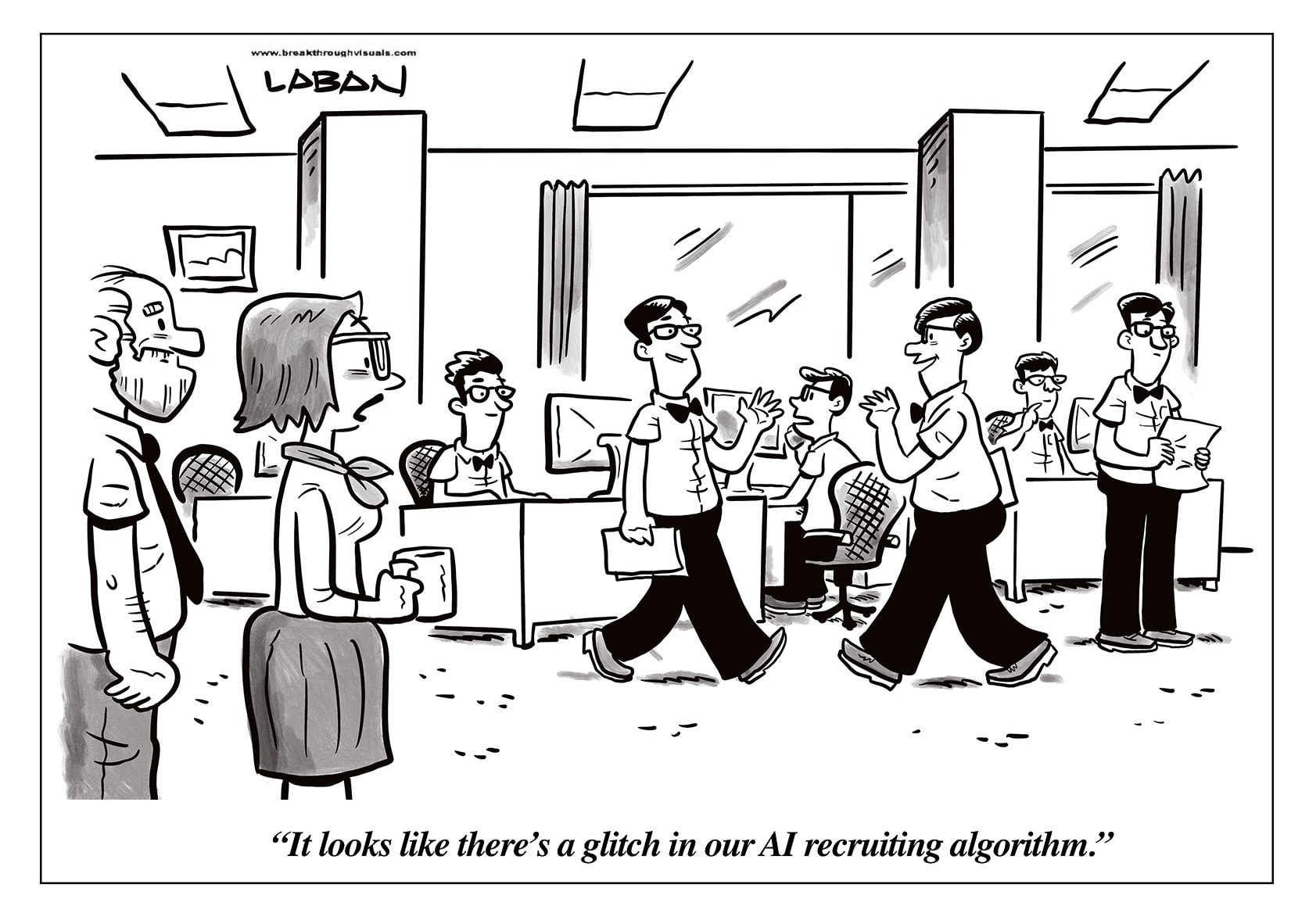
In tools such as LinkedIn Recruiter, the AI algorithms analyze data from the recruiter's past search and engagement behavior to recommend relevant candidates who may be a good fit for the job openings. This helps recruiters discover potential candidates who may not have been found through traditional keyword-based searches.
Here's a look at how LinkedIn Recruiter helps with finding the right candidates for you:
When it comes to candidate sourcing, AI has the ability to identify and reach out to potential candidates at scale.
The major advantage automated candidate sourcing provides is the ability to go from looking at hundreds of candidates to hundreds of thousands of candidates, surfacing relevant, top talent.
This allows recruitment teams to focus on the human elements like interviews, meetings and building relationships with candidates. This efficiency helps improve key recruitment metrics like time-to-hire and cost-to-hire.
2. Writing job descriptions and candidate outreach copy
AI-powered language generation tools, like GPT-3, can generate well-written job descriptions and candidate outreach copy by analyzing patterns and structures from vast amounts of text data. These tools can generate compelling and coherent language tailored to the specific job role or target audience, saving time and effort for recruiters and HR professionals.
Here’s an example of a prompt you can give ChatGPT for help with writing unbiased job descriptions that also contain keywords commonly used by candidates in their job search.
Prompt: Write a job description for an entry level software engineer. The job description must contain unbiased content and key words that are commonly used by candidates during job search.
This is the job description that it came up with:
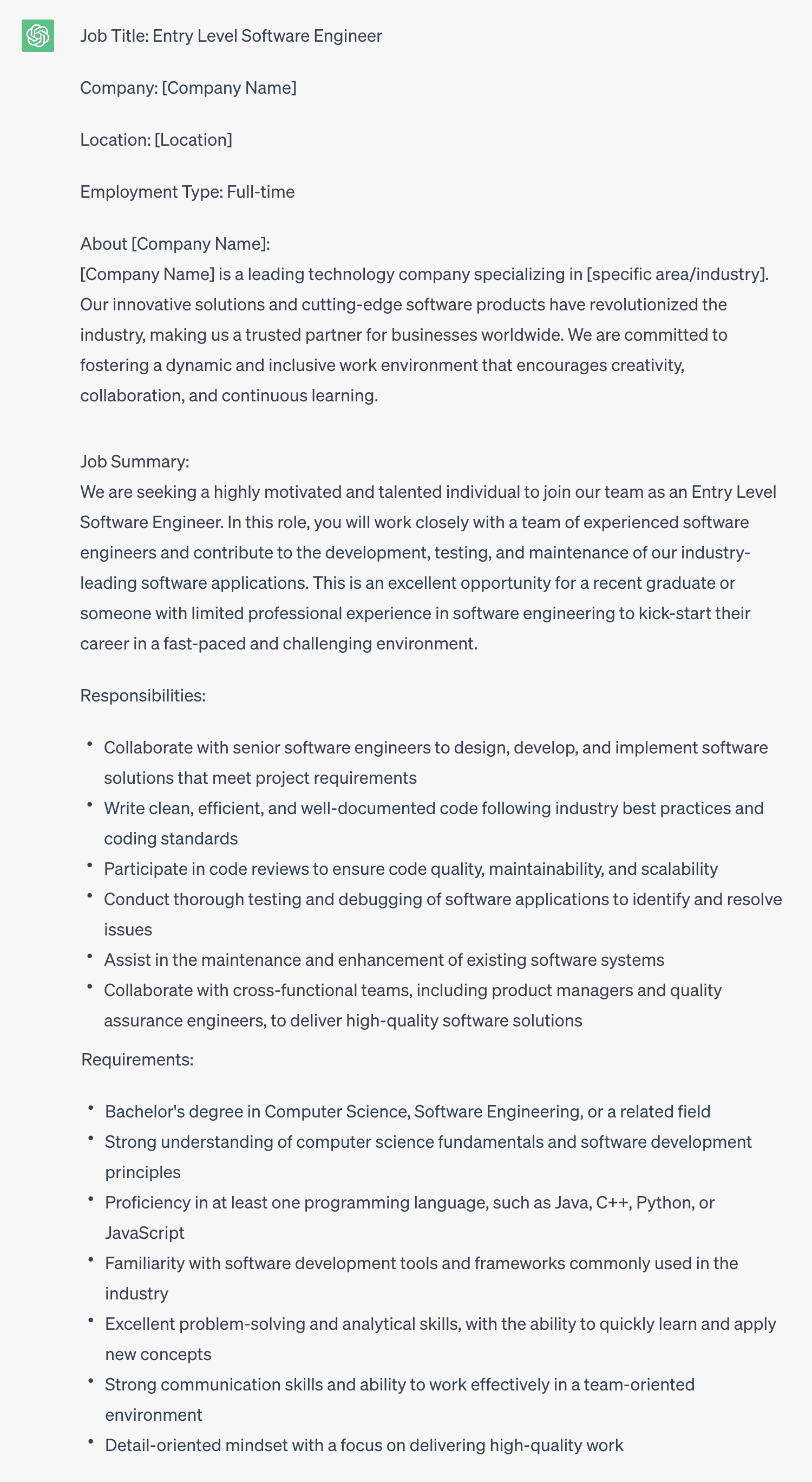
It also gave a list of keywords which are commonly used by candidates searching for entry-level software engineer roles:
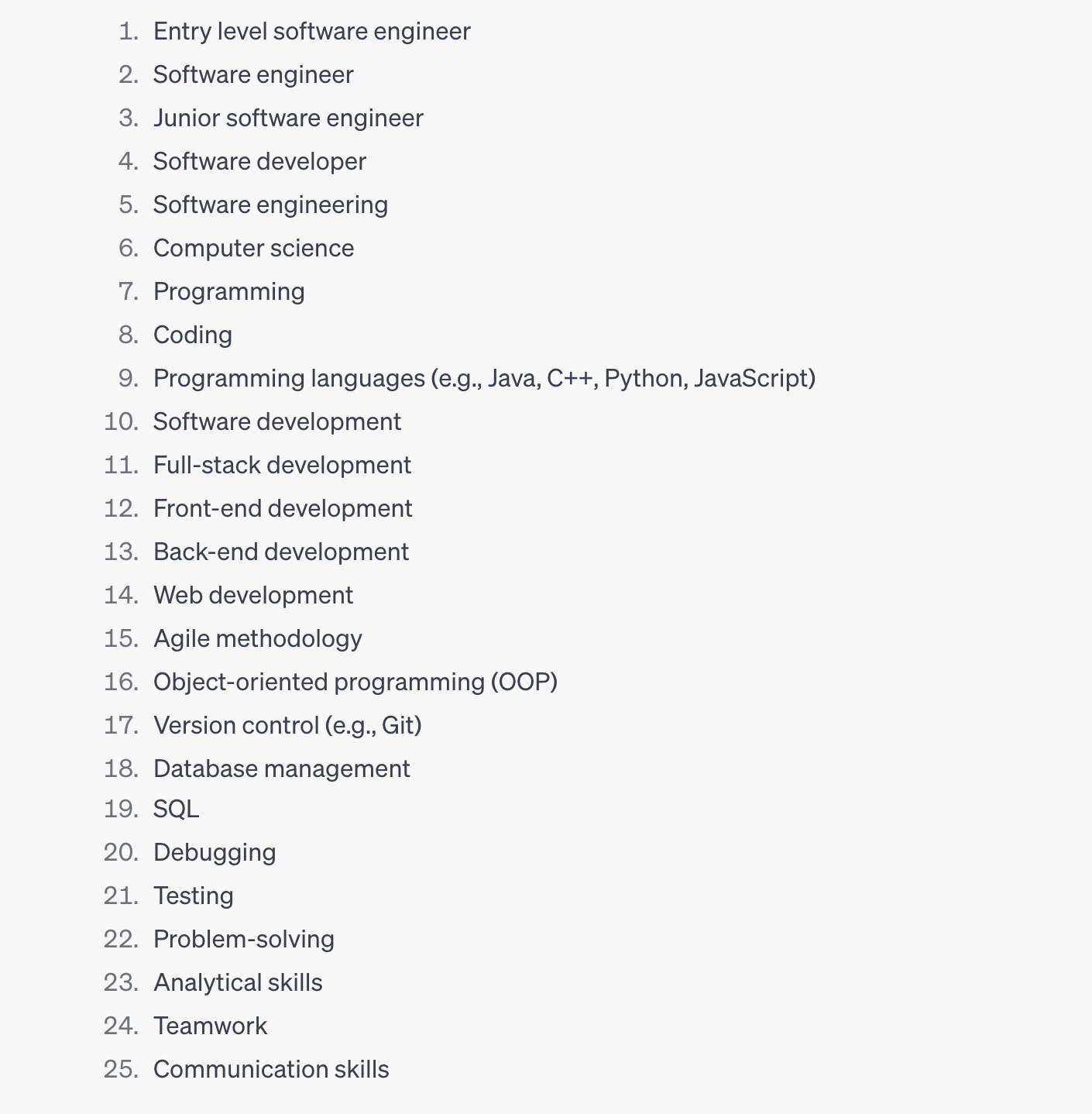
By optimizing the language with these keywords, AI can help improve the visibility of job postings on online job boards and search engines, increasing the chances of attracting qualified candidates.
It helps you save time in drafting emails and writing copy meant to attract candidates to your organization.
Prompt: Assume you are a startup founder looking to hire a marketing manager to help with the growth of your startup. Craft an attractive candidate outreach copy written in a casual tone.
Here’s the response that ChatGPT came up with for the above prompt:
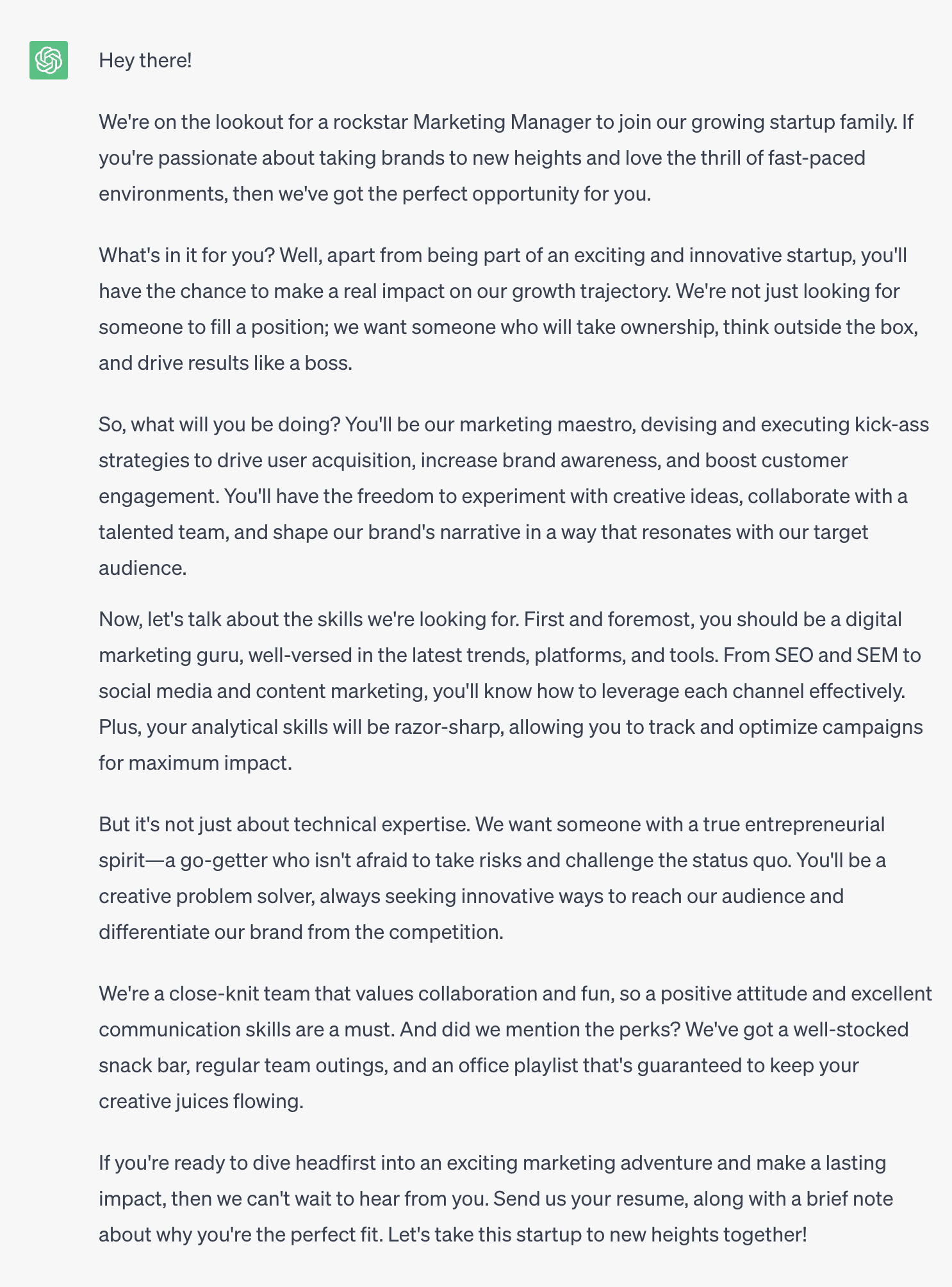
As you can see, this makes a recruiter's job very different from the one they had before the rise of AI. You need to know how to use these tools in your recruitment process as these help you save time and enable you to focus on more important tasks as opposed to writing repeated job descriptions and candidate outreach copy.
3. Using chatbots for automating tasks
The use of chatbots in businesses has been on the rise for the last few years. After proving a solid use case by enhancing customer relationships, chatbots have also made their way into recruitment. These chatbots have AI and NLP capabilities, making them intelligent and powerful agents for automation.
However, chatbots should only be used at the initial stages of the hiring process (discovery, application, screening). In the final stages, a human touch is essential.
Some of the applications of recruitment chatbots are:
- Welcome a candidate on the careers page and answer any questions they might have.
- Ask for their contact details to reach out with more information later.
- Answer any questions about work culture, career progression, leave policy etc.
- Pre-qualify the candidates for a particular role.
- Schedule the first round of interviews for qualified candidates.
4. Testing for soft skills
AI has revolutionized the recruitment process by streamlining various aspects, and one significant differentiator is its ability to assess and evaluate candidates' soft skills. Soft skills are crucial in today's workplace, as they speak a lot about a candidate's ability and determination to learn. This is essential since most skills, especially in tech, have a short lifespan. So you want employees who are not only willing to learn but have the ability to learn new skills.
One of the challenges in traditional recruitment methods is the subjective assessment of soft skills, as they are often difficult to quantify and measure objectively. However, AI-powered recruitment solutions leverage NLP, ML, and predictive analytics to assess and identify soft skills in candidates with greater accuracy and consistency.
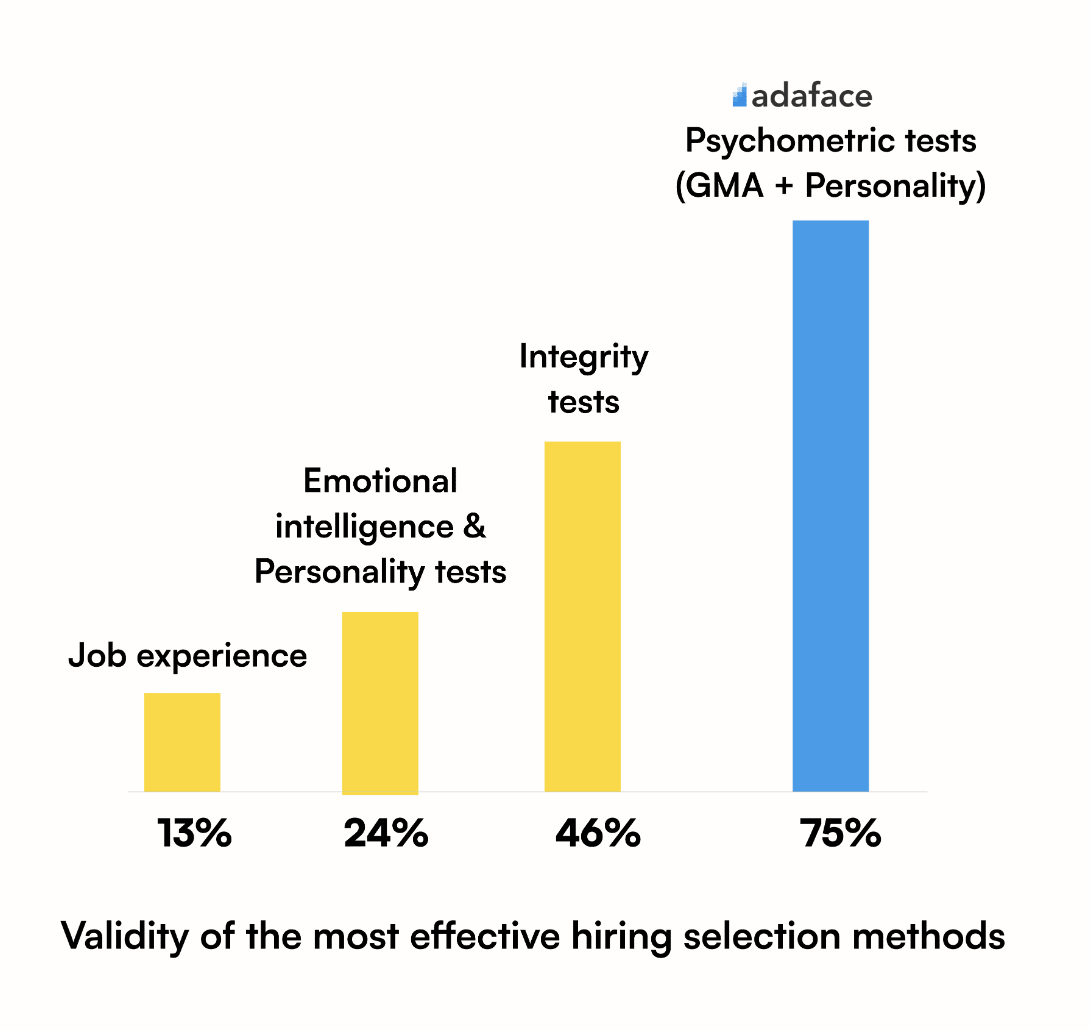
Soft skills tests can include personality tests, communication skills tests, aptitude tests and many more. They also prove to be very effective. For example, the Adaface Psychometric tests have a very high validity compared to other personality and emotional intelligence tests.
AI can also analyze candidates' written and spoken communication, including their resumes, cover letters, and responses to interview questions, to identify patterns and assess their communication skills.
AI being used to recruit for soft skills is a significant differentiator in the recruitment process. It enables objective and unbiased assessment of candidates' soft skills, provides a more efficient and streamlined recruitment process, and offers valuable insights for talent management.
5. Analyses of the talent market
AI can analyze external data, such as job market trends, salary data, and competitive intelligence, to provide insights into the talent market. This can help organizations make informed decisions about their recruitment strategies, including identifying potential talent gaps and opportunities.
Intel saw a 20% increase in career page visits from a targeted billboard campaign and a recruitment event through the usage of LinkedIn Talent Insights to understand its target audience better.
This is a prime example of how AI in recruitment is not restricted to resume screening tools and chatbots.
It can be leveraged to help you fine-tune your recruitment strategies and give you insights into trends you could never see by looking at the data with the naked eye.
How will AI change the role of recruiters?
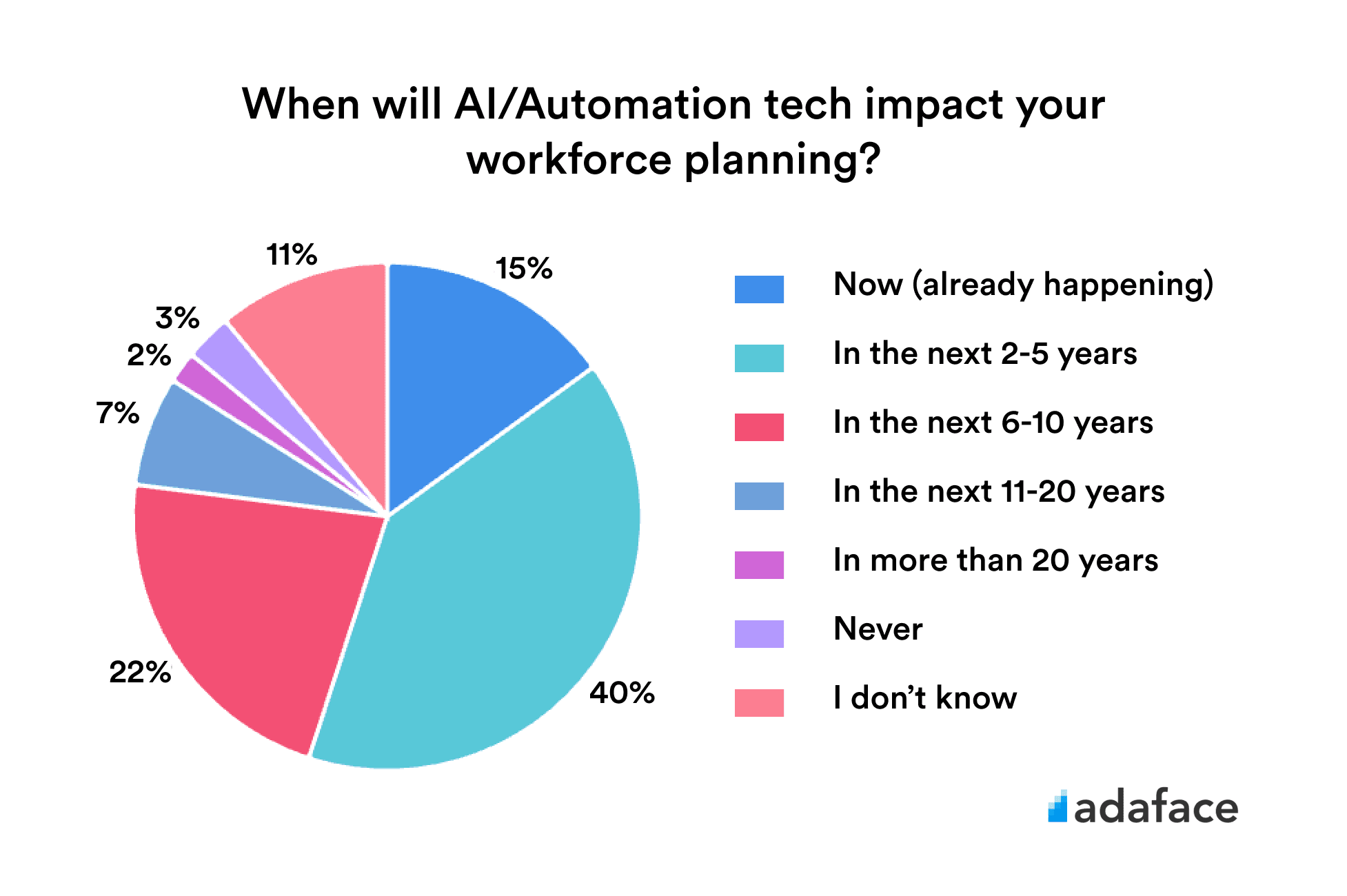
If AI can conduct tests, chat with candidates and even eliminate bias that humans introduce, is the recruiter's role vanishing with the increase in AI tools?
While the job of a recruiter is changing with AI, it will not vanish. AI is meant to enhance and augment the recruitment process, not replace human recruiters.
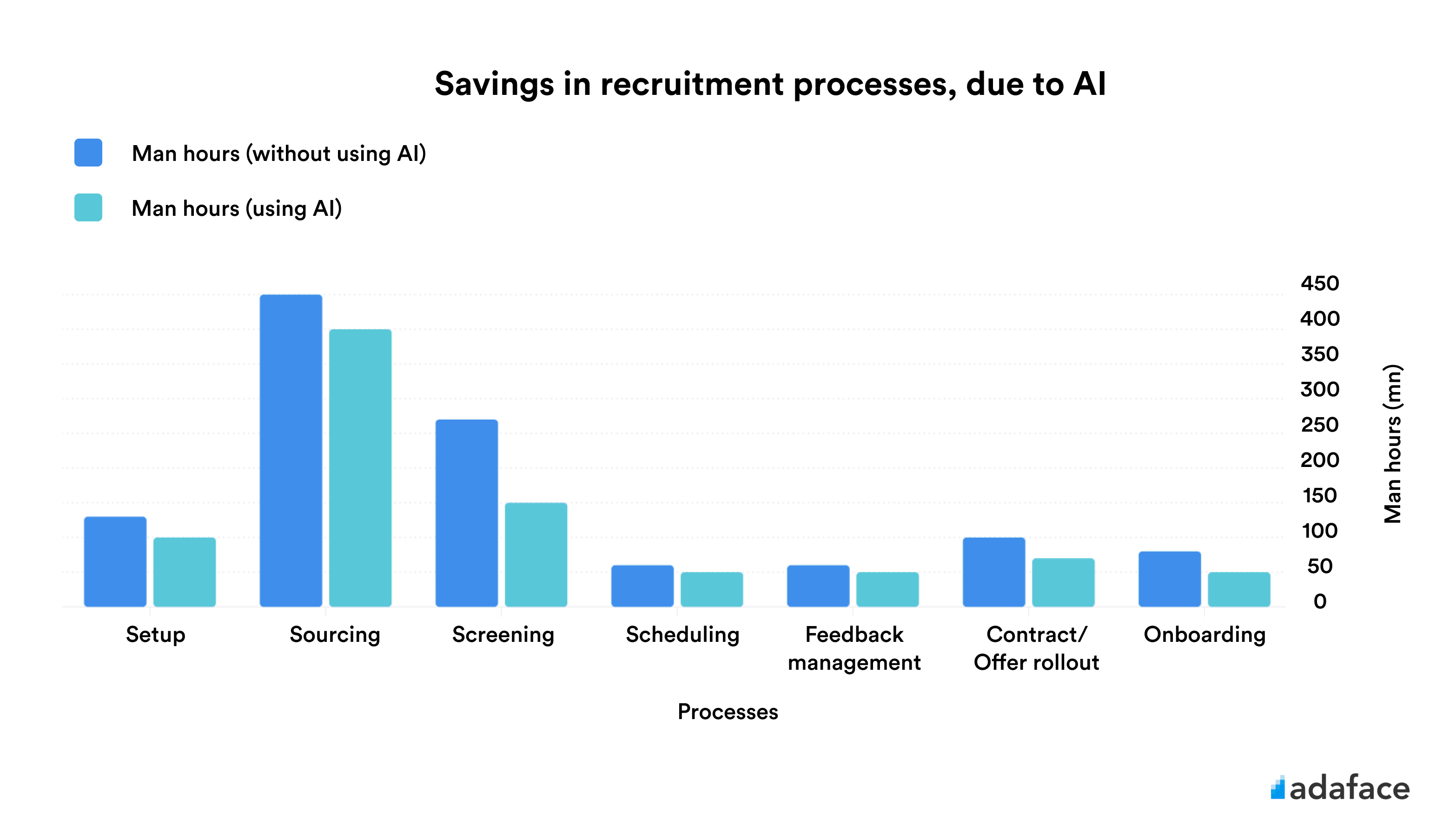
While AI can automate certain tasks, recruiters bring invaluable human skills such as relationship-building, empathy, intuition, and critical thinking that are crucial in identifying the right fit for a role.
A study by Indeed found that AI can help recruiters save up to 50% of their time spent on screening resumes and scheduling interviews, allowing them to focus on other tasks that can have a more meaningful impact on the candidate experience and the overall quality of the hiring process.
The use of AI in recruiting is expected to continue to grow in the coming years and is likely to play an increasingly important role in shaping the future of the recruitment industry.
Do companies use AI in Recruitment?
The Singapore government currently uses conversational assessments for their tech hiring.
They plug in the Adaface assessment chatbot with their apply button. When a candidate hits apply, they are redirected to a chatbot conversation with an intelligent bot, Ada, who collects their details and asks technical questions to validate their skills for the role, and programming and debugging questions to check their coding skills.
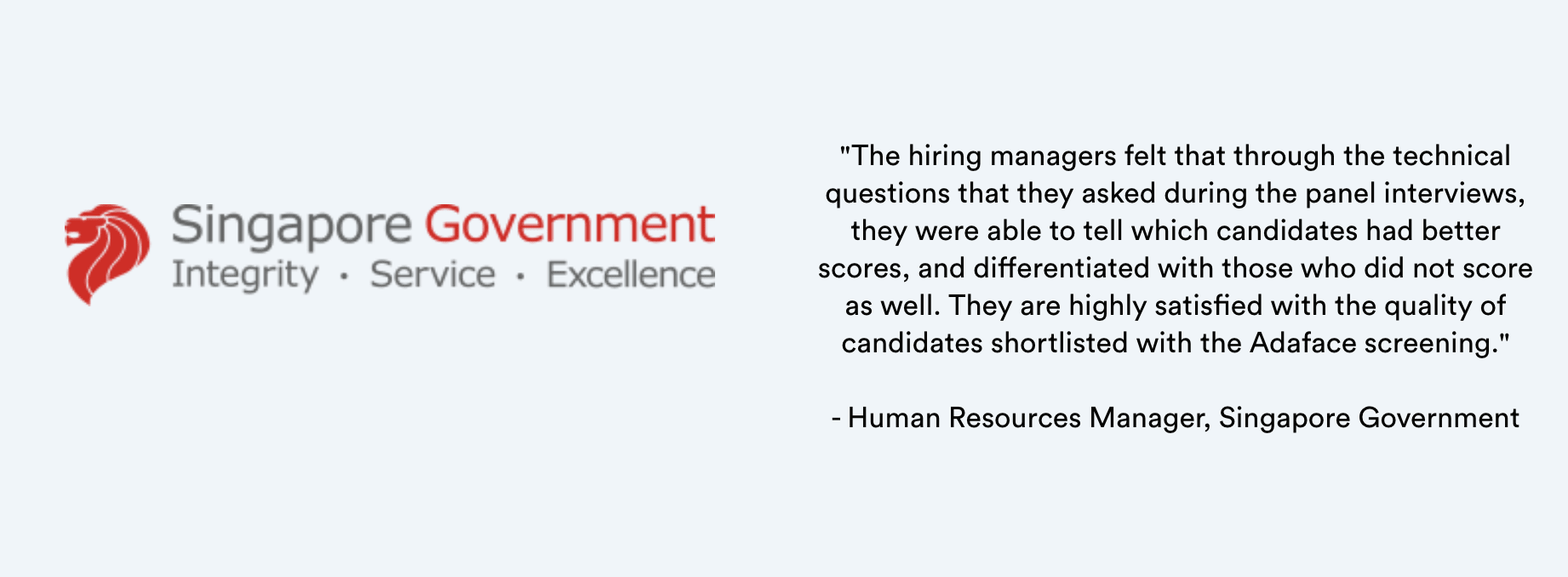
Hilton uses AI to capture, screen and assess thousands of applicants for their contact centre team across the US. Hilton uses NLP capabilities to engage and qualify candidates, and this automation has helped them improve recruiter productivity.
Unilever claims to save hundreds of thousands of pounds each year by replacing recruiter screens with an AI system that does automated video interviews.
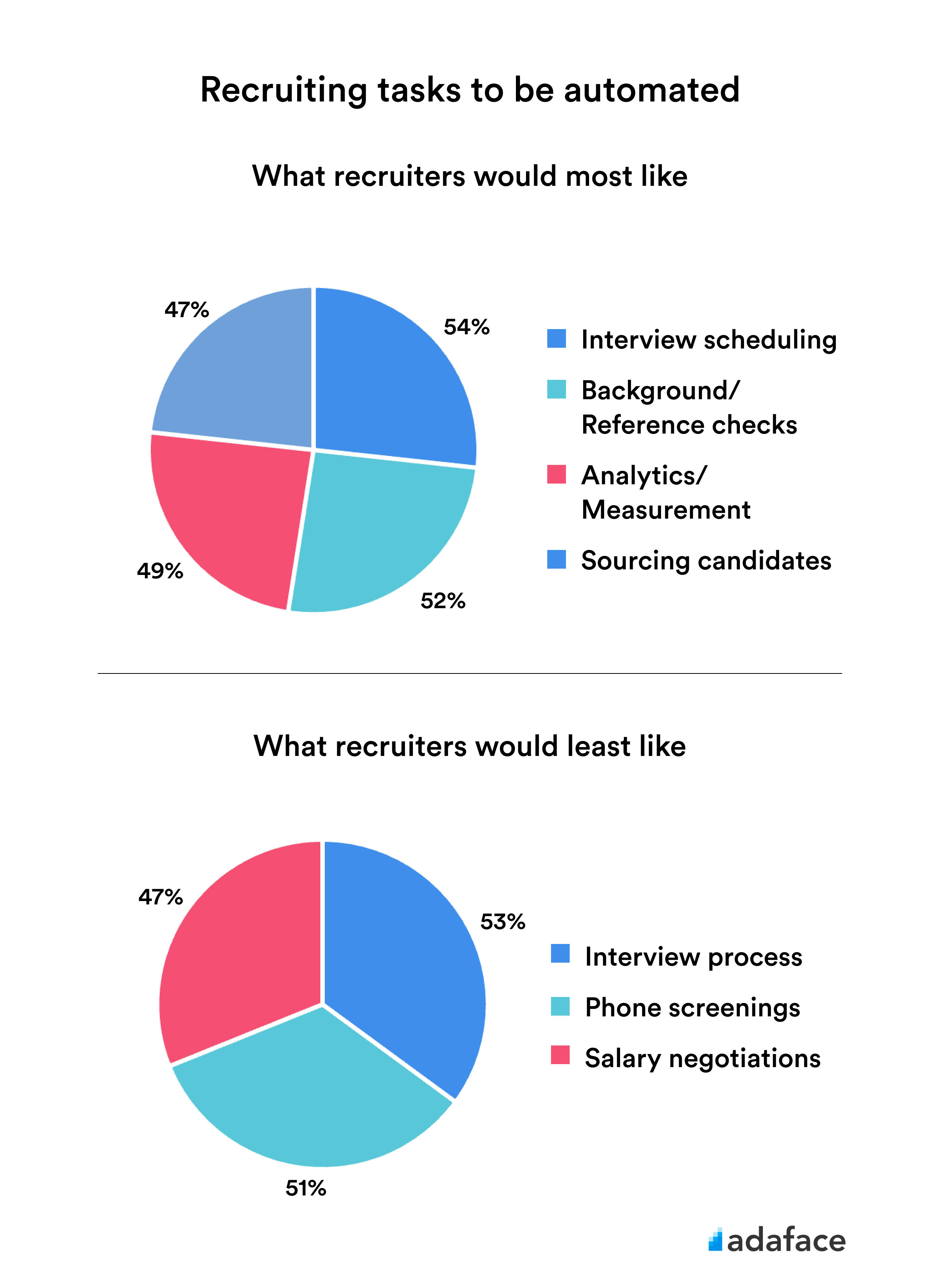
Unlike other recruiting trends in technology and innovation, AI recruitment practices and recruiting automation are here to stay.
FAQs
What are some challenges or limitations of using AI in recruitment?
Some challenges or limitations of using AI in recruitment include potential biases in AI algorithms, lack of interpretability in AI decision-making, data privacy concerns, and the need for continuous monitoring and human oversight to ensure fair and ethical use of AI in the recruitment process.
What are the key considerations for selecting and implementing AI tools in recruitment?
Key considerations for selecting and implementing AI tools in recruitment include:
- Understanding the specific recruitment needs.
- Researching AI-driven recruitment tools.
- Conducting trials and assessing performance.
- Assessing the scalability and integration capabilities of the AI tool with existing recruitment processes.
- Monitoring and refining your recruitment strategy.

Deepti is a co-founder at Adaface. Her online persona is extroverted, but in real life she is terribly introverted and you can startle her just by calling out her name.
Spending too much time screening candidates?
We make it easy for you to find the best candidates in your pipeline-
with a 40 min skills test.


